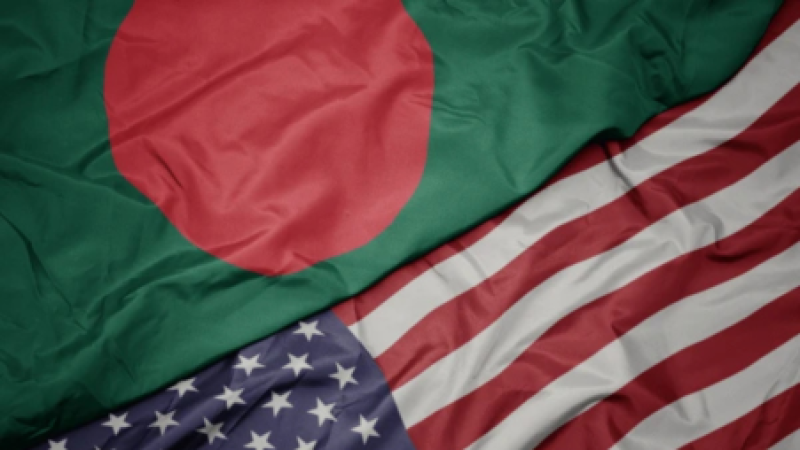- Fakhrul condemns attacks on media, calls for unity, justice |
- 2 cops among 4 hurt in clash outside Indian Assit H.C. in Ctg |
- Inqilab Moncho urges people to avoid violence |
- Hadi’s death: Prothom Alo, Daily Star offices set afire |
- সন্ধ্যায় পৌঁছাবে হাদির মরদেহ, জানাজা শনিবার |
Dhaka seeks duty-free access for key exports to US

Bangladesh is set to raise concerns over trade barriers and seek duty-free access for its key exports to the United States during discussions on the sidelines of the World Bank-IMF Spring Meetings in Washington, scheduled for 21–25 April.
A brief from the commerce ministry notes that while over 82% of US tariff lines are duty-free, Bangladesh’s exports are largely excluded. In fact, Bangladeshi products face a weighted average US tariff of 15.2%, with knitwear and non-knitwear taxed at 18.7% and 15.8% respectively—among the highest for any US trade partner.
In contrast, US goods entering Bangladesh face minimal tariffs, averaging just 1.62% in FY2023–24.
Bangladesh will call on the US to grant duty-free market access in line with WTO ministerial decisions taken in Hong Kong and Bali, citing the country’s LDC status and ongoing trade imbalance. Officials will also advocate for zero tariffs on garments made from US cotton, despite Bangladesh currently applying a 16% ad valorem duty on imported American cotton—worth $478 million in 2022.
Previously, Bangladesh offered bonded warehouse facilities to ease imports of US cotton. These efforts gained momentum following a short-lived 37% tariff imposed by former US President Donald Trump on 2 April, which was paused a week later. A 10% baseline tariff, however, remains.
In response, Bangladesh proposed reducing or eliminating tariffs on 30 key American goods and reaffirmed its commitment to zero tariffs on US agricultural products and scrap metal. It also pledged to halve duties on top US exports, such as gas turbines, semiconductors, and medical equipment.
The Bangladeshi delegation to the spring meetings will be led by Finance Adviser Salehuddin Ahmed, alongside the Bangladesh Bank Governor and senior trade officials.
Bangladeshi exports continue to face challenges in the US market. The US suspended GSP benefits for Bangladesh in 2013 and continues to apply a 16.9% MFN duty. This is despite significant improvements in factory compliance, recognised by the ILO, including 192 LEED-certified green garment factories and enhanced labour rights and workplace safety standards.
Yet, these improvements have not been reflected in the prices paid by US buyers, according to the commerce ministry. Bangladesh’s exports to the US fell by 17.68% during January–March, while competitors like China and Vietnam posted growth.
In the talks, Bangladesh is also expected to propose measures to boost technology transfer, encourage US investment in high-tech and high-value sectors, and seek support in standardisation, AI, and recognition of professionals under Mode-4, especially in health services.
The ERD brief highlights US development assistance in areas such as governance, health, education, and climate change, with $954 million committed for the 2021–26 period, including $174 million for good governance.

